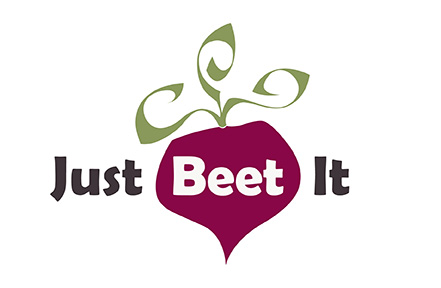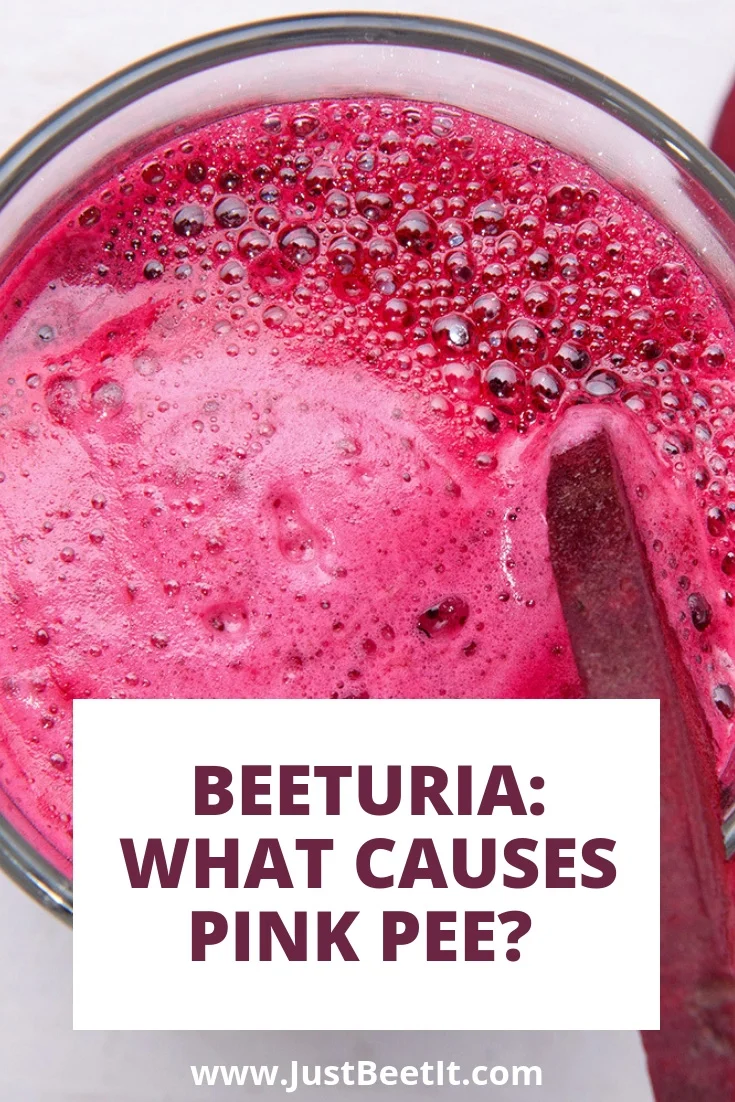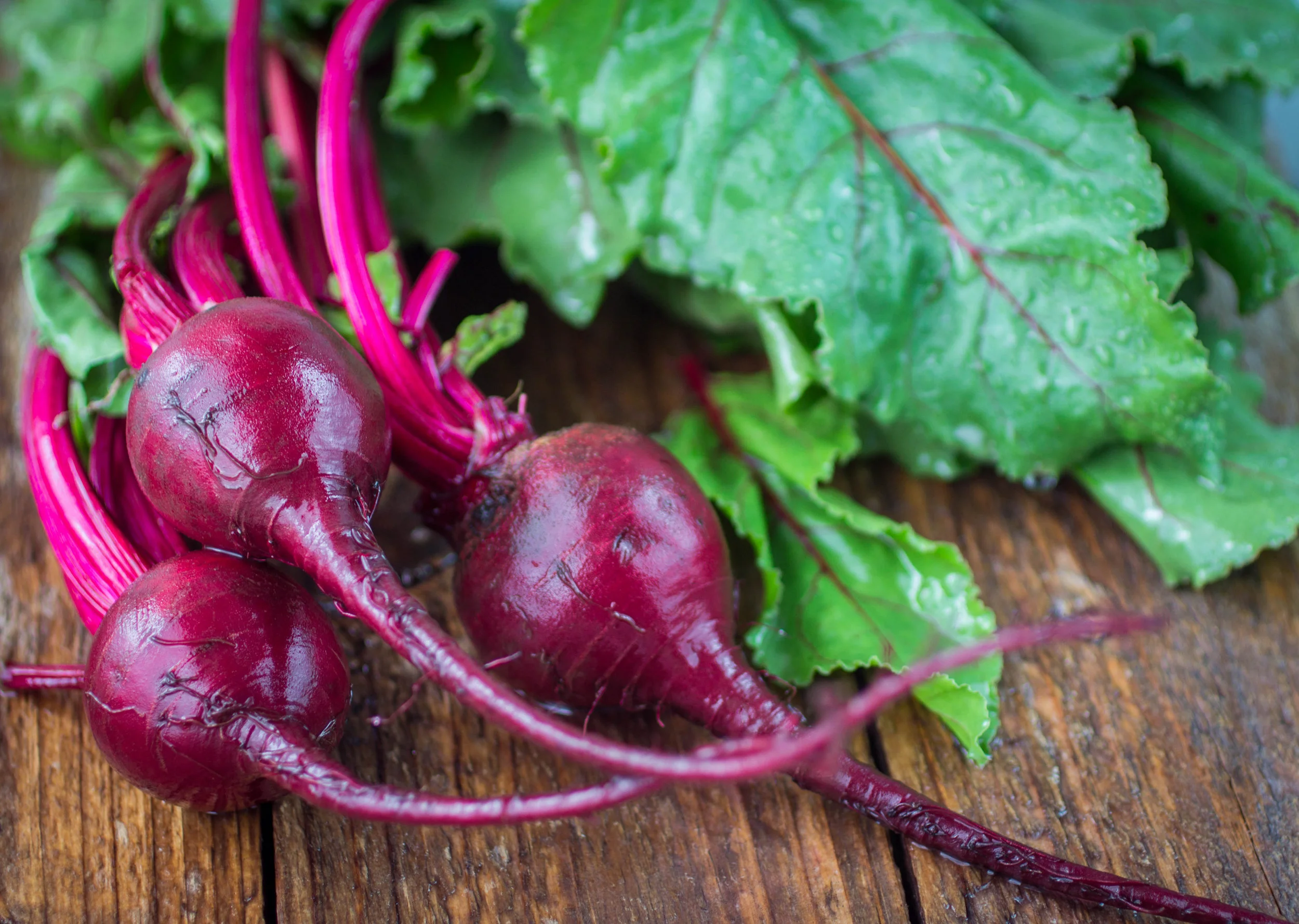"911, What's Your Emergency?" BEETS!
Many of us have experienced pink pee panic, the horror after seeing an alarming pink or red color in the toilet bowl. Before you freak out assuming you're bleeding to death and dial 911, think back to the foods you may have previously eaten that day or the day before.
Did you recently eat beets or drink beet juice? The red or pink color in your urine (and stools) after eating beets can cause much distress and alarm, but the discoloration is a harmless condition called BEETURIA. Yes. It's a thing.
The number of people who get alarmed after seeing pink hues in the toilet after eating beets is real. The show Portlandia even does a short sketch called: “911 Beets Emergency” (see below in article).
But don’t be alarmed! Beeturia is normal.
WHAT IS BEETURIA?
Beeturia (comprised of "beet and "ura") is passing red or pink urine after ingesting beetroot or other foods which have been colored with extracts of beetroot or beetroot pigments.
The pigment hues and discoloration in urine (or stool) vary from individual to individual.
The red or pink color is caused by a pigment in the beet called Betanin (within the family of betalains).
Beeturia occurs in about 10-14% of the population.
The type of beetroot and how it's prepared may significantly alter beeturia. Raw beet juice and raw beetroot tend to create darker hues than cooked beets.
While it can be alarming and psychologically distressing to see pink pee after eating beets, beeturia is usually harmless. Red beets are vibrant, and the discoloration in the urine is caused by the betalain pigments in the beets breaking down and being excreted through the urinary system.
Betalain is an antioxidant which combats those pesky free radicals that cause harm to our health, and this superhero antioxidant is one of the many reasons why we should eat more beets! However, the glorious and healthy pigmentation that provides vast nutritional benefits is also what may cause some alarm as it passes its way out of the body.
WHAT CAUSES BEETURIA?
Although beeturia is harmless, you may be wondering: what causes pink pee after eating beets? The studies and evidence vary from iron absorption fluctuations to food allergens to unbalanced stomach acidity (pH levels), all of which are still being analyzed all around the world. Although it's evident that beeturia greatly depends on each person's physiology, the majority of studies focus on the stomach's pH balance as a possible reason for pink or red tinged urine (or stools) after beet consumption. Perhaps our bodies are trying to tell us something?
Stomach acid serves a very important purpose, and the key is finding the "Goldie Locks" balance of stomach acidity - you want it to be "just right." Proper levels of stomach acid are required to adequately absorb many nutrients, such as minerals, vitamin B12, folic acid, and proteins. According to one of the many studies by the Gastrointestinal Center at the University of Manchester, "Hydrochloric acid is normally secreted by the stomach to perform a very important function: to enhance the breakdown and subsequent absorption of the food and nutrients consumed. So part of the cost of low stomach acid is malabsorption or an inability to properly digest and absorb vitamins and minerals."
Therefore, if your stomach acidity is low or compromised, you may be more apt to experience beeturia as your body may not be properly metabolizing and assimilating beetroot pigments. Some people even test their stomach pH levels with beets. Pink pee after eating beets is quite normal, but if it happens every time after eating beets, it wouldn't hurt to take a look at your digestive health.
LET’S TALK GUT HEALTH
Gut health is important! Your gut flora is crucial for your overall well-being. Beneficial bacteria in your digestive system aid the body's critical functions, such as digestive and immune systems. To correct unbalanced gut flora and stomach acid levels, add some digestive enzymes and probiotics to your diet to aid digestion and create healthy gut flora. Eating raw foods also helps with enzyme health, and fermented foods, such as kvass or sauerkraut work wonderfully for balancing digestion and gut flora. In this regard, to make homemade kraut, a blender food processor combo would be of significant use. Either you need chopping of the cabbage for sauerkraut or a bit of blending of raw veggies; a food processor would be a great help!
IS BEETURIA HARMFUL?
Nope. Pink pee after eating beets is not harmful. While you never want to mistake beet pigment for blood, producing pink urine after eating beets is harmless and many people experience it (even those with healthy stomach pH levels sometimes still pee pink - hence the reason studies are ongoing); however, excess color in urine (or stool) could be a sign of of other health-related problems, especially for those with low kidney function or history of kidney stones. If you didn't consume beets and your urine color is red, that should never be ignored as hematuria (blood in urine) can be a sign of a serious disorder. As always, seek the advice of your physician or other qualified health care provider with any questions you may have regarding a medical condition or treatment.
Don't be scared of a little pink or red pee after eating beets! The beet's antioxidants, vitamins, minerals, and fiber are well worth the vibrant hues swirling down the toilet bowl. Have you experienced pink pee panic after eating beets? Share your stories below!
Resources
Britton, Edward and John T. McLaughlin. (2013). Ageing and the Gut. Retrevied from https://www.cambridge.org/core/journals/proceedings-of-the-nutrition-society/article/ageing-and-the-gut/A85D096755F5F7652C262495ABF302A0.
Bryan, Nathan S. and Carolyn Pierini. (2013). Beet the Odds: Harness the Power of Beets to Radically Transform Your Health. Austin, Texas: Neogenis Laboratories.
Iwai, Wataru and Yasuhiko Ab, et al. (2013). Gastric hypochlorhydria is associated with an exacerbation of dyspeptic symptoms in female patients. Journal of Gastroenterology. Retrieved from https://link.springer.com/article/10.1007%2Fs00535-012-0634-8.
Low Stomach Acid: A Surprising Cause of Indigestion Symptoms. (2017). Retrieved from https://universityhealthnews.com/daily/digestive-health/low-stomach-acid-the-surprising-cause-of-many-indigestion-symptoms/.
Watts, A.R. and Lennard M.S., et al. (1993). Beeturia and the Biological Fate of Beetroot Pigments. Retrieved from https://www.ncbi.nlm.nih.gov/pubmed/814887.
YOU MAY ALSO LIKE










